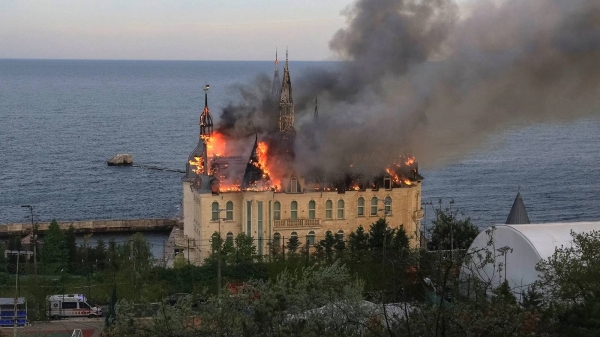
Dozens of market sellers in the Tunisian capital have seen their livelihoods go up in smoke
TUNIS: The Tunis Medina had reopened for business after nearly three months of lockdown, but vendor Abdel Aziz Talbi wasn’t working.
Three weeks earlier, the 67-year-old lost his entire stock of clothes and shoes in a fire that ravaged the second-hand market.
“I had prepared and bought clothes for the summer,” said Talbi. “All of it is burnt.”
Dozens of market sellers in the Tunisian capital have seen their livelihoods go up in smoke, destroying their hopes of recovering from months of lost revenue due to slow sales and measures put in place to stop the coronavirus.
Even before the market in the historic Hafsia neighbourhood had to close for lockdown in March, sellers say sales of their winter stock were low due to mild weather and a new market that blocked access to their stalls.
The old market, which houses several hundred stalls, reopened on May 11, as the lockdown was partially eased in the middle of the holy month of Ramadan.
Traders say they hoped sales would pick up with people looking for new clothes for Eid. But two days later, 30 of the 50 stalls in the oldest part of the market went up in flames. Police are investigating, and have arrested six people suspected of arson, according to municipal authorities.
“They (the sellers) were already suffering and Ramadan tends to be a good time, so the fire hit at a very bad time,” says Katharina Grueneisl, a researcher studying Tunis’ second-hand economy at Durham University in the UK. Market sellers who spoke to the Thomson Reuters Foundation said they lost between 3,000 dinars ($1,100) and 35,000 dinars worth of stock to the fire, though Grueneisl said reliable data was hard to find.
“In the period of (lockdown), I borrowed money — 500 dinars here, 500 there. I am now in debt to my wholesaler, my friends and my relatives,” said Talbi.
“Sellers that can are rebuilding. The rest of us, we’re just standing here and watching.”
Now a square of rubble punctuated with a few blackened metal poles, the marketplace was a criss-cross of wooden stalls. It sprung up on the demolition site of a historic Jewish neighbourhood, when rural migrants arrived in Tunis and started building and selling informally.
Today, the vendors are part of Tunisia’s informal workforce, worth almost 60 percent of the country’s total working population, according to the International Labour Organisation.
It added that informal workers were among the hardest hit by global coronavirus lockdowns.
By instituting severe quarantine measures early, Tunisia managed to control the spread of the disease, reporting only 49 deaths.
However, those measures also deepened the country’s economic crisis and have left many Tunisians struggling to make ends meet.
Among the poorest 40 percent of Tunisian people, over three-quarters received no income at all during the lockdown, according to Tunisia’s national statistics institute and the World Bank.
“We have no insurance, so I didn’t receive anything,” said Ali Boualeg, 82, who has had a stall in the market since the 1970s.
Amel Meddeb, head of the municipal council for the medina, said the government was paying a 200-dinar monthly stipend to individuals hit by the crisis, but many informal workers were not eligible.
“In the informal sector, we can’t assess whether workers are in need or not, we don’t know if they earn a lot or a little,” she explained.
The municipality has offered to help repair the damage caused by the fire and sees this as a good occasion to “study the situation of the fripe (market),” said Meddeb.
That could include formalising the marketplace by allocating spaces, registering the sellers — who currently pay the municipality a small, annual licence fee — and improving the layout to prevent future fires, she noted.
But the vendors are wary of the council’s plans, worried that authorities will “take this place” said Mohamed Ayari, a 62-year-old seller, as he sat on a cushion and surveilled the construction workers rebuilding his stall.
Meddeb, though, said there are no plans to get rid of the market completely.












